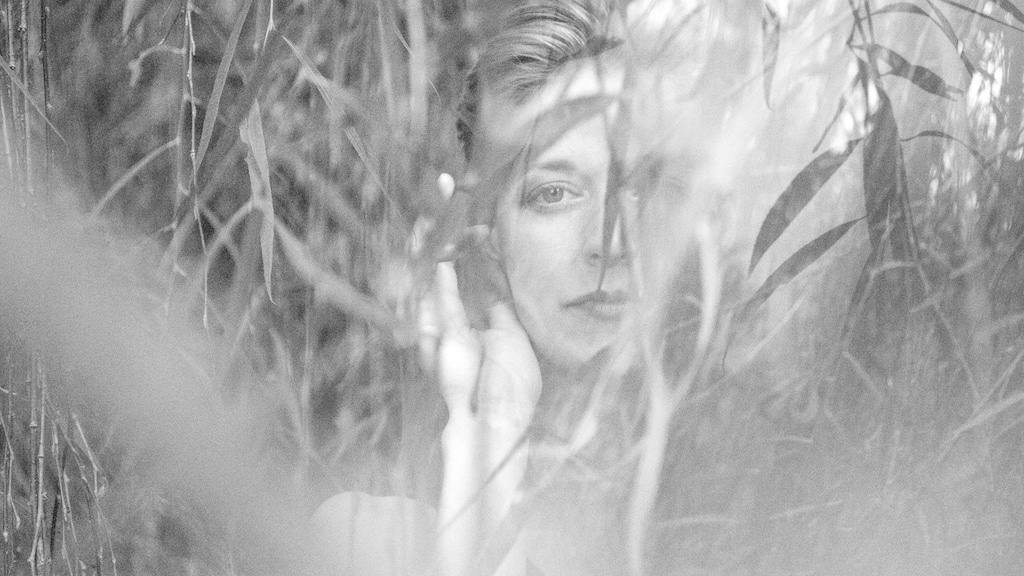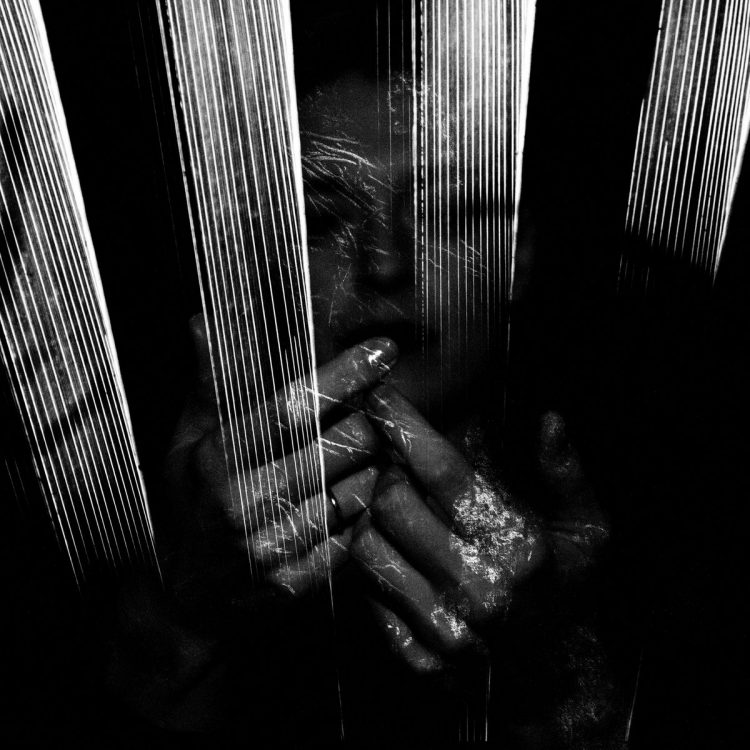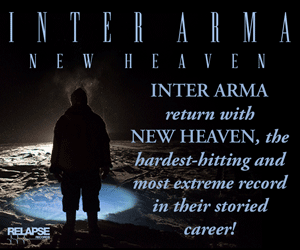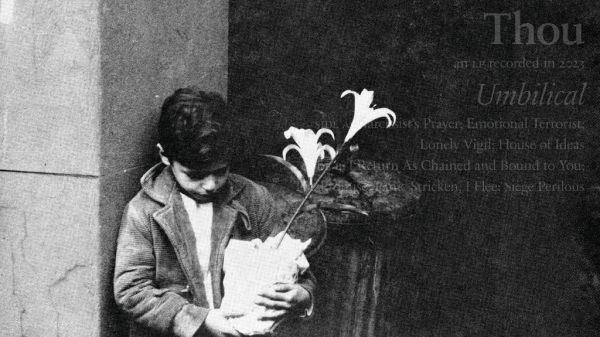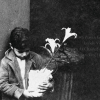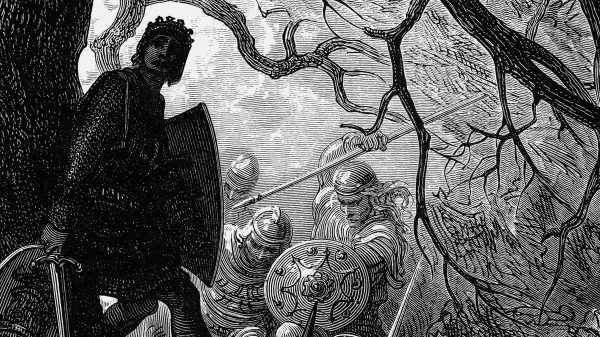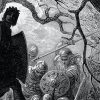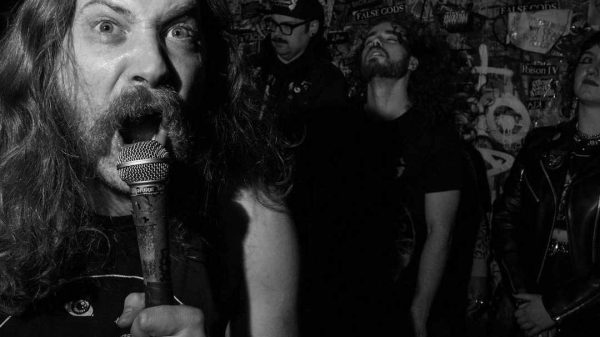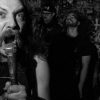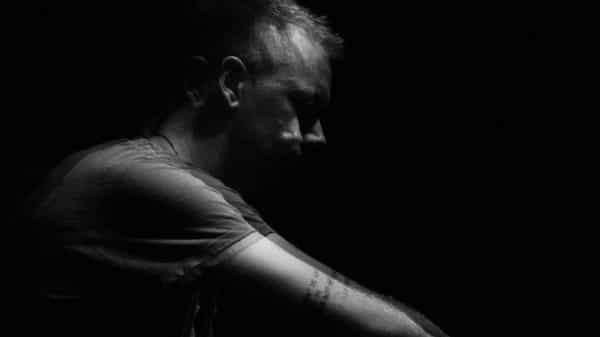Interview by William Archambeault | All photos by Teddie Taylor
Singer and pianist Emily McWilliams crafts dark ethereal pop music under the solo moniker Silver Godling. In addition to this interview, CVLT Nation is premiering her take on Alice in Chains’ “Rain When I Die.” McWilliams’ unaccompanied version features her transforming the iconic grunge tune into a turmoil-ridden tale that feels distinctly her own.
McWilliams has long been Thou’s secret weapon. For over a decade, she has sung, played piano, and helped arrange pieces on the group’s recordings. Most notably, she rose to the forefront on the band’s 2018 EP Inconsolable, a largely acoustic endeavor that featured her as the primary vocalist on multiple tracks. While McWilliams is not a core member, her contributions have helped shape the group’s prolific output.
Now, McWilliams has released her second Silver Godling album, Ravel, via Gilead Media, Strange Daisy, and Howling Mine. The album features her backed by an all-star cast of New Orleans underground musicians, including past and present members of groups like Gland, Little Death, and The World Is A Vampire. McWilliams also sparked a creative collaboration with photographer Teddie Taylor to shape the album’s distinct visual aesthetics. Combining their insights, the duo has crafted a massive booklet that comes with vinyl copies of Ravel.
We spoke with McWilliams and Taylor about forging a truly collaborative relationship, their love for Alice in Chains, and the slow process of stepping out of Thou’s shadow.
SILVER GODLING’s cover of Alice In Chains’ “Rain When I Die”
Can you both talk a little bit about what Alice in Chains and “Rain When I Die” mean to you?
Emily McWilliams: My sister is almost 11 years older than I am, so you can imagine she’s 17, and I’m like 7, roughly. When I was growing up, she’s in college, and I was right in those pre-teen years, so it was perfect for an older sibling to introduce me to things. My sister was instrumental in introducing me to a lot of that stuff at a young age. I always loved Alice in Chains. They were always one of my favorites. I could not tell you what my favorite song was way back when, but “Rain When I Die” has been one of my favorites for a long time. I just love it. I love everything about it. I love the sound, the lyrics. I think it’s a great song, and it translates well to the piano.
Teddie Taylor: Was the first time you played that at that show that was down in that place that was down in the [French] Quarter?
EM: Yeah!
TT: I was just like, “Oh my god!” It was just so cool to see it in person. It’s this song that you play when you’re sixteen in your car when you’re driving, and then you made it this completely different thing! It was so cool!
Is it difficult to find your own voice when you’re doing other people’s songs like that?
EM: I’m such a planner in a lot of ways when it comes to music. I know I mentioned that when it comes to Thou: plotting things out or orchestrating. I’m a nerd. I enjoy that aspect of music writing. When it comes to covers, there are plenty that I’ve wanted to try that I’m like, “This will sound cool on a piano!” I go to start working on it, figuring out chords, seeing what I can change, and I’m just like, “nuh-uh! This isn’t it!” It is more of a feel. That one, I got it first try. This fits everywhere, so it was very easy with that one! Then there are some other ones. I haven’t recorded this one, but I did a Peter Cetera cover, “Glory of Love,” that I’ve played live that I make really sappy and depressing. That one also translated well! But then there are some other eighties songs that I feel fit in that same kind of sound that I’ve tried that I thought would be cool and “nuh-uh! It doesn’t work!” I didn’t do this with Alice in Chains, but, with other covers, I like to make it different. That includes changing chords, which I did with Peter Cetera’s “Glory of Love.” I changed it to minor, so it’s all minor key. It works great, and it also highlights the male chivalrousness nature of the lyrics, if you can even call it that. I kept to the chords with Alice in Chains, but I like to highlight different things in the lyrics. Some songs don’t do that. They just don’t sound right that way. It just depends.
You recorded the music for your new album before the pandemic. When were you working on the collaborative visual elements with Teddie?
TT: What was it? Last September through December?
EM: Yeah. I think we started [working on the photography] in September. I think I recorded it in August. I don’t think that either of us set up for it to be, “Okay. We’re going to do this thing where it is a true collaboration.” It was more like, “Let’s do this awesome thing together!” We were throwing ideas around and –
TT: It was so much stuff! “What if we do this tomorrow? What if we do this the next day?” [laughs]
EM: Exactly! It was so fun. As far as collaboration goes, it was not like we sat down to do this thing where they would grow together before I wrote the music. The music was done. I had recorded the album. Teddie and I talked about doing something together for a while, kind of in passing, but this seemed to be the right fit. I sent her the music and talked about having artwork that’s not like, “Oh! Let’s go in after. Here are my photos, and you can pick what you like.” It was analyzing the songs, breaking everything down – what they mean to me – and then trying to find and create imagery that fits the music both in sound and aesthetic.
What were some of the conversations that you were having that shaped the directions for the artwork?
TT: Remember when I came over to do pictures of your piano? That’s how it started becoming more graphic-y and not just straight up pictures. We started overlaying stuff and overlaying it. Most of the photographs are overlays of parts of the piano on top of photos from the swamp, but you can’t tell that that’s a piano wire or a piece of an instrument.
EM: I can’t remember if it was before that event or right after, but we were at Teddie’s house, and we were going through the meanings of the songs, thinking about imagery that we would like to pair. The name of the album is Ravel. I could get nerdy and go into all of it if there’s interest, but a ravel is, by definition, a knot that is fraying, a thing that needs to be undone. It’s not supposed to be in the knotted form necessarily. Teddie and I had talked about integrating that in the form of nature imagery where there’s something coiling. Teddie went on a long journey of trying to find a coiled moccasin snake, and it was not the right time of year to find such a thing. [laughs]
TT: It was winter, so it was a little hard to find a moccasin [snake] out in the middle of the swamp! [laughs] We wanted moss and ferns, all this stuff. Of course, since then, I’ve gotten so many pictures that perfectly fit it but [gestures broadly].
Teddie also did the artwork for the first album. Can you talk about the connection going from that first album to this release?
EM: The first one, I didn’t even look to do it on vinyl. That was more like “I love Teddie’s work. Can I use one of your photos on the cover?” [laughs] That was it. There wasn’t a collaboration in the sense there is on Ravel, other than asking and receiving permission, then picking one. [laughs]
Teddie, two of the primary focuses of your work are nature and music. How did you end up with those two focuses?
TT: I started off taking nature pictures when I first got a camera, so that’s how I got good at it, and then I was like, “Well, I should probably start trying to take pictures of music.” I never quit one or the other, so now I do both. [laughs] …My aunt got me into photography, and she’s an actual nature photographer, so I did that with her for years. Once I got pretty good with my camera, I started taking my camera into shows. It just built up, and eventually, I started being able to do it a lot more. I figured out that I liked black and white. Not everyone takes dark black and white pictures of birds and flowers and stuff. I like to think I’ve got a nice little niche.
Your art definitely has an aesthetic that does shine through on the Silver Godling work.
TT: Thanks. [laughs] Can you put the little emoji that looks sick beside everything I say? The one that has the wonky eyes and the wavy mouth! [laughs]
Brace yourself for another fun question. Musicians make up a large portion of your portfolio, but you’re pretty adamant about not selling prints of them. Can you walk me through that mindset?
TT: I’ve always felt awkward about it because it’s someone else’s face. I feel perfectly fine selling a photo of a mountain or a bird, but I feel a bit weird if it is a photo of someone else that I just happened to take. It feels weird to sell someone’s face! You can’t have the rights to it! [laughs] I feel like I would want to give that person the money since it’s them. It’s some weird moral thing that I’ve come up with. I know I’ve said it better before, but I can’t think! [laughs]
EM: I understand what you’re saying. It makes sense, and it’s true. It would depend on the person! You could be in a situation where somebody is like, “I deserve the money!” It makes sense that you’d feel that way because you don’t know how someone will feel about that. That would mean having a conversation, and they’re not always necessarily accessible.
TT: Probably eighty percent of the photographers I know and follow online all sell pictures of shows and of portraits they’ve taken. I think it’s just a person to person thing. I’m almost positive that no one I’ve ever taken photos of would send me an angry email asking for their five dollars of the ten-dollar total. In my head, I’m always uncomfortable about it. The mountain isn’t going to make me uncomfortable, but the person does! [laughs]
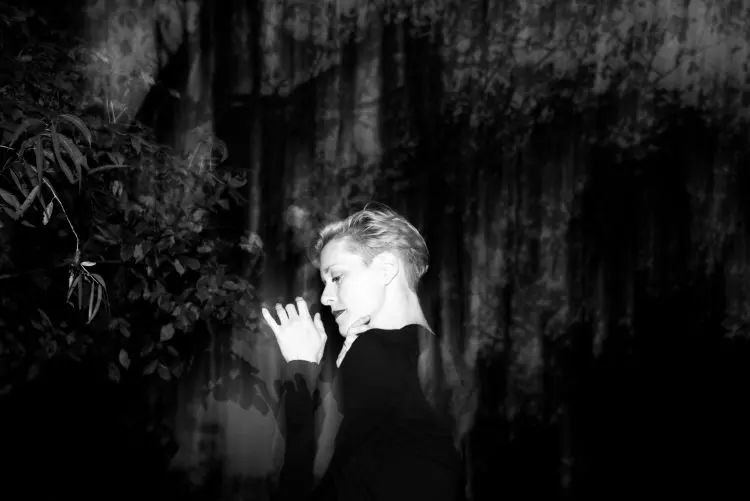
This is the part where I have to transition and talk about the Thou connection. [everyone laughs] Emily, you’ve worked on a lot of their albums to the point that you’re almost a secret member. How does it feel to work on those albums even though you don’t get a lot of recognition for your work on them?
EM: Here’s the part where I have to decide how honest I want to be. I’m going to be honest. We’ll go with it.
Life is strange, and we all come to realizations about ourselves at different points. I feel like the past three to five years of my life, I’ve been on this journey of figuring out what I want, that includes how I work, what I do to make money, who I want to surround myself with, [and] who I don’t want to surround myself with. [laughs] All of these things. I’m explaining all this because it all figures into that relationship. Out of this handful of years, my mom and my sister have both been diagnosed with cancer. They’re both doing well, but there have also been some personal things that are like, “Wow!” Not to state a cliche, but life really is short and precious and all that stuff. All that figures into it as well.
I got to the point where I realized I need to work for myself, and I’m fortunate that I have the mentality, organization skills, and motivation to do that. I guess it was right before the MJ Guider / Thou tour in the Fall of 2018. Right around then, I started my businesses: my piano tuning, lessons, and personal training, which was huge. It’s a whole other type of stress, but it was something that I needed to do that was empowering and is something that I am continuing to love. One of the reasons I was able to quit my nine to five, which thankfully was in music but wasn’t the right fit, was I could do my first real tours. It was with Thou and with MJ Guider. With MJ Guider, there was a lot of practicing, but that is all Melissa Guion. It is her project, and I am in the live band along with Mike Wilkinson. There was a different relationship there, but I’ve probably been on the majority of Thou’s albums, providing stuff that I had written, sometimes orchestrating. I think back on Summit; I did orchestration for a bunch of different instruments. The process was always rewarding and fun. I loved it. I love those people so much. They’re more than friends. They’re like family. I love them so much, and I feel like they’ve given so much in return.
It wasn’t until this part in the last couple of years that I realized, by working so closely with these other bands, what I wanted for my own music. The whole idea of recognition is a difficult thing because there is a big part of me that wants to be like, “Who cares? I should love what I’m doing. That’s why I should do it. Period.” But it’s not that simple. If it were just about that, I wouldn’t be spending the time trying to get my music out into the world. I’d just do whatever I want in my living room and listen to it myself, pat myself on the back, and move along. [laughs] There’s this element of wanting to be liked. I think that’s probably a human reaction. Maybe it is stronger for some people like me than others. Wanting my music to resonate with people. These are all things that I don’t necessarily get and won’t necessarily get collaborating with Thou or anyone else for that matter because, by nature, I’m the guest musician brought in. As part of that last round of tours, we did a lot of stuff with Inconsolable, which is such a departure from their normal heavy stuff for a lot of reasons. That last tour I did in the spring of 2019, leading up to Roadburn [Festival], people were walking out of shows because maybe it wasn’t advertised correctly. Some people love that like, “Yeah! Get out of here! We don’t want you anyway!” For me, I have to stand up here front and center because I’m the main voice on that album, along with Melissa and KC. It was tough. I was like, “I’m feeling very vulnerable. This doesn’t feel good. I don’t like this. I’m not Thou, and I have to take this, whatever you want to call it. I’m having to first-hand deal with this negativity.” It’s complicated. I hope to continue doing a lot with them in the future! I love them.
Honestly, I grew up listening to some heavy music and, by heavy, I mean Alice in Chains, Marilyn Manson. But I didn’t really start getting into heavier music until I started listening to Thou in a way that I had to arrange or write. It’s different. It’s not just coming up with a riff. For me, it was coming from a music theory point of view because that’s how I do things. It was this profound appreciation from me for how amazing Andy and Matthew are at writing. Right now, where I am today, talking with you two, I have figured out what I need to balance these things. For a very long time, I was working jobs that weren’t a good fit for me or that I maybe even downright hated in some situations that were very depressing and that were sucking the life out of me. My only creative outlet was working with Thou. That’s not something that they would’ve ever – That was me and my life journey. That’s where I was. I was not spending enough time on my music and creativity. I think that’s something that I figured out over the past year or two, specifically trying to invest time in my own stuff. Now, I think there can be a balance of all these projects in a fulfilling way. It’s unfortunate for me. I love these people so much, and I had to realize these things when I did after a decade or more of collaborating and then realizing “Okay. I need a better balance here.” But I’m glad I’ve been able to figure out what that balance is.
On the one hand, you have monumental achievements like Roadburn and being the first “metal” band to do a Tiny Desk Concert. On the other hand, you have people literally walking out because they’re thinking, “What is this? This isn’t Thou!”
EM: Exactly! I think it’s safe to say that with Inconsolable, the people who love it, love it! I remember we played a matinee in Portland, probably part of that first tour in the fall. This person came up to me, crying. They were right up front during the whole set – crying, singing along. They came up to me at the end and were like, “I’ve been in rehab. I’ve been going through a really tough time. This has been the only thing that’s gotten me through.” I didn’t write the songs, but I did put a lot of time into creating and vocal melodies, so it was still super meaningful. That’s not the first person I encountered who was going through a rough time, and this album was saving them in a way, which is more important than anything. 40-50% of the people are probably somewhere on that side. There’s practically no in between. [There are] the other people walking out, writing horrible and nasty things online, which I try not to read. When you start, it’s hard to stop. I think it created this rift in the listeners [and] pulled in many new listeners. For me, someone who felt at the time that I hadn’t found my own whatever I’m going to be doing, I was in this situation where I don’t like this rift. This is not what I see for my music. I don’t like this. [laughs]
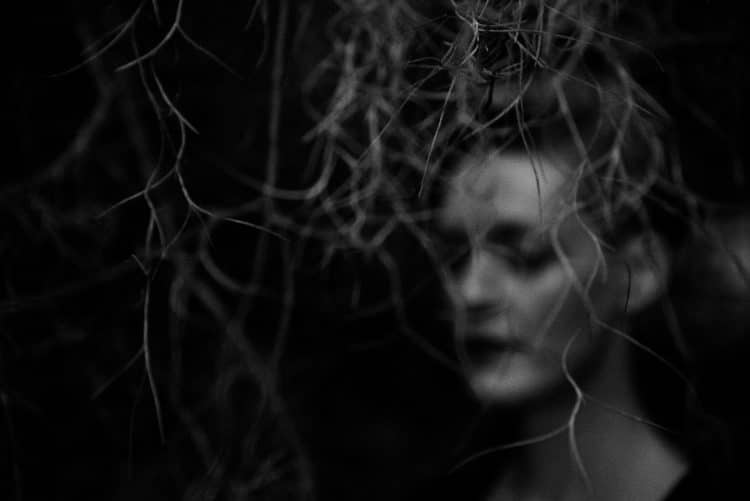
Thankfully, I think Teddie and I are very safely on the positive side of that camp.
EM: Yes! [laughs]
TT: That was definitely my most listened to album of 2018. I think “Come Home, You Are Missed” is still probably my most played song ever on Spotify. [laughs] I listen to it constantly. It’s my favorite Thou song, and it doesn’t even include any riffs. Willie wants Thou covers, and I want Thou no riffs.
So what you’re saying is we essentially want Thou’s Nirvana Unplugged?
EM: Yes! [laughs] I love it!
One more thing about that specific period. You both had big experiences at Roadburn in 2019. Can you talk a little bit about that?
TT: That was the year. I had my photo show going on at Roadburn, and Thou was playing like twice a day. Every time I saw y’all, I was running back and forth from somewhere. I’d pass Emily and Bryan in a hallway and just go, “Hello! Goodbye!” I remember I missed the Inconsolable set because I was waiting for Lingua Ignota to start. I was literally about to leave her set to come to see y’all and y’all were walking in like “Oh, we just finished. We ran in here to come to watch her.” [laughs]
EM: I think the set went well but here is just a funny aside. I’m pretty sure the flight plans got messed up somehow. We flew in and had maybe four hours before we played that set. We were jetlagged. I got so much stagefright for that show. I think I managed to pull through. I was so exhausted. I had to tape all of the words onto one of the monitors…I think the set went well, but I was out of body. I don’t know where I was. I was so nervous. I was so tired. [laughs]
TT: That was in that Koepelhal, which isn’t that wide, but it’s like a football field long. The main stage, which y’all played, is like an arena! It’s huge!
EM: It’s huge! I have a picture of the people from the main set from behind the curtains when I was waiting to go out. Roadburn was amazing. I don’t know what I expected beforehand. I did not realize how huge it was. Getting to be there with MJ Guider was also amazing. I feel like that was kind of the start of Roadburn integrating some other cool stuff that’s not just the standard heavy music scene, which is neat…Thou were the artists in residence that year, so I think they had four sets. I can’t remember! They played a lot! I was on the Inconsolable one, the main one, and then I played with MJ Guider. That was a lot of playing. I was, probably because of all the stuff I was processing in my brain, suffering from actual stagefright. I’m happy that all of those years of piano recitals paid off to where I could just power through somehow without losing my mind.
I’ve never been to Roadburn, but I imagine playing the mainstage is a very valid reason to have stage fright.
EM: Yeah! It was an experience! It was so cool, but I think my favorite show I’ve ever played was not that long ago with Kallie [Tiffault] at [New Orleans DIY venue] the Mudlark [Public Theatre]. We lit candles. There was a real piano. I could talk to people without having to speak into the microphone. It was amazing and beautiful. That’s my preference for a good show! [laughs]
Teddie, didn’t somebody steal one of your photos at Roadburn?
TT: Yes! My Drab Majesty photo! Someone unlocked the poster box and took it! [laughs] I got an Instagram DM. Some girl was like, “I saw the person who took it!” I was like [gestures broadly] “Okay.” [laughs]
This is what happens when you don’t sell prints! [laughs]
TT: Oh well. If it’s worth stealing, it must be okay. Fun times.
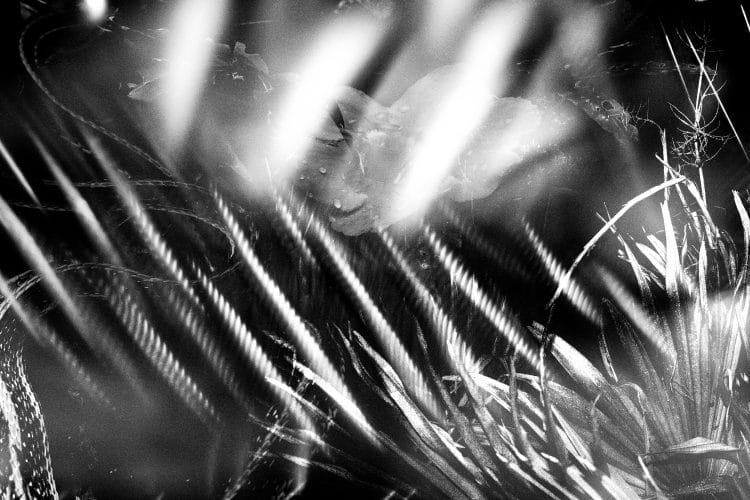
I’ve seen Silver Godling live a few times, and those performances have very sparse arrangements. Ravel is very arranged, and there is a lot of stuff you notice with each new listen.
EM: Yeah! That’s something I haven’t figured out yet. I enjoy playing by myself. I love playing with Kallie, which is a different but still very sparse arrangement. We’ve played a few shows together, and we were supposed to do that mini-tour into Texas in April, which we postponed. It’s super fun but, if I ever do a tour longer than just a few days, I think I’ll probably approach it like how Melissa approached MJ Guider with some kind of live band setup. It’s challenging. It doesn’t have to be like the recordings, but the instrumentation on the first record is totally different compared to Ravel. Now, this third record will be completely different but perhaps a little easier because it can all be programmed so I can have one person handling that.
Ravel is very representative of the New Orleans underground scene, which is really overlooked. This album is essentially an all-star cast of people that no one outside of New Orleans would recognize. How do you feel that New Orleans shaped that record?
EM: That is a good question. In line with what I was saying earlier about choosing who I want to be around me, the people who are on that record directly result from that. It might be kind of unintentional in the shaping that happened with the people specifically. I was like, “I love Kallie, I love [Sedef] “Switch” [Seren], I love Beck [Levy], I love Steve Weigand, and, if they all agree, I want them all to contribute.” I sent them the music once I had recorded the first mix, but they weren’t part of the writing. They came into the studio to lay down their parts, which was super fun. Recording is very awkward for me, as it is for many people. It doesn’t come naturally to me, and this was just the most fun I’ve had in the studio. All of the songs on Ravel are all very much a result of all of that stuff that I was working through in my life leading up to that. It’s very personal, but it’s also somewhat external about certain situations and my reactions to those things. There’s an external element to it, which has to do with New Orleans to some degree, but mostly me personally and where I was. As far as the sound, I gave pretty clear instructions. I had everything arranged and orchestrated as to what I wanted in the songs…except for what I like to call Beck’s bird scream at the end of “Ghost Dog.” I was talking to Switch or Kallie, and all of a sudden, she was at the microphone just letting it rip. It was so great that we kept it in. [laughs]
Was the process behind Ravel different than when you did the first record?
EM: Oh yeah! This is also part of the personal journey, figuring out what you want. Silver Godling became a thing for Not Enough Fest, and I asked Michael Moises to do it with me. That’s why we named it, and it wasn’t just Emily or Emily McWilliams. [laughs] For the first handful of years, I wanted it to be this easy band setting. Over the past few years, I’ve realized that I’m writing everything. This is my thing. [Thou guitarist] Andy [Gibbs] was in the latest Silver Godling band iteration along with Michael. That’s when Thou was starting to do all the work on the EPs and Magus. He just had a lot going on too. Just kind of the result of all that together, I decided I needed to make this more of a solo thing and just focus. The first album was in that kind of band zone with Andy and Michael, which was still super fun! But it was also pretty separated because I was working at Hall Piano at the time, and they graciously let me use one of the Steinway concert grands to record. I was by myself with James Whitten at Hall Piano. We were all kind of doing our parts separately in a way. It was just a different experience. It was still great, and we still did it with James, who is the best.
Are you already done working on the follow up to Ravel?
EM: I have the next album written, recorded, and mixed. It’s not mastered yet. Teddie is not doing the artwork on that one…I’m so torn, but I’m also excited about this very different collaboration with Craig Mulcahy.
TT: All of that stuff he did for that Thou album is so good. Also, all the things he did for Melissa [of MJ Guider]!
EM: Teddie and I have talked about this. Craig is so gifted with studio work and lighting. He’s so good with the coloring and creating an environment. The Thou stuff for the Emma Ruth Rundle album is very dark and moody. This is going to be quite different from all that. We’ll see. That’s going to happen sometime this fall, and then I’m going to have the same path of trying to find someone willing to put it out with its giant oversized booklet. [laughs] …It has been really fun getting to learn to record on my acoustic piano at home and making all kinds of wild noises with it other than just playing. That’s all buried in there, so I’m excited about this next one. It is, in ways, connected to the Ravel themes but a lot more internal. That’s there, and we’ll see what happens!
Your dad has tuned pianos for everyone in New Orleans from Ellis Marsalis to Trent Reznor. How did that have an impact on your musical development when you were a kid?
EM: It’s funny. I listen to Nine Inch Nails because of my sister. It had nothing to do with my dad. I thought it was so cool because that was when Nothing Studios was here. That’s where my dad tuned. I thought it was just the coolest thing because I was a big Nine Inch Nails fan! [laughs] But that was the extent of it. As far as music in the city, jazz was always huge, and that includes the Marsalises. My dad has always been pretty connected with institutions like NOCCA. There has always been this enriched jazz culture brought into my family by meeting some of these people and also by being exposed to some of the music, either by listening or, when I was old enough, getting to see it. The same could be said for classical in the city as well. He’s always had a strong relationship with the Louisiana Philharmonic Orchestra, so I’ve always had that exposure too. My mom is also a classical musician, and she’s a music school teacher now, so I had a lot of connections through her.
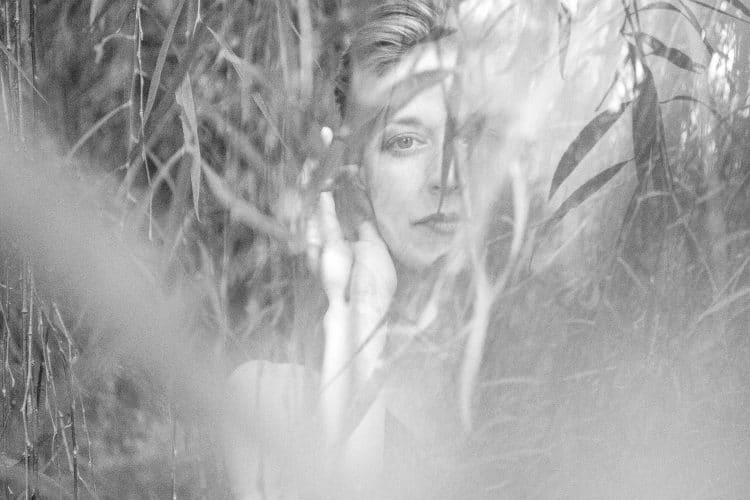
For most people, Nine Inch Nails is teenage angst music. How did it feel having this be your teenage angst music, but your dad is the one tuning the pianos?
EM: That’s funny! [laughs] I was always very strong-willed or rebellious, as my dad probably would’ve said. [laughs] I think it would’ve been different if my dad was friends with Trent Reznor, but that was not the case, so it was safe to be my teenage angst music. [laughs]
Is there anything else you want to say?
EM: My main thing is, and I want to be honest, is all the stuff I said about Thou is piecing things together. Maybe don’t make things seem like I’m bashing them because I’m not. I love them.
What you said earlier makes a lot of sense. You’re just talking about your personal development and how that relates to this very lengthy, neverending collaborative process you’ve had with them.
TT: Yeah. It just sounds like you want to do your own thing and not always be working with someone.
Yeah. You’ve worked on these critically acclaimed albums, but simultaneously, not many people recognize your name and the work you’ve done on those records.
EM: This is an interesting thing about when I did the tours. It wasn’t all the time, but I had a handful of people who would come up to me and be like, “It’s so cool to finally be able to put a face with the voice I’ve heard on all this!” That’s cool that they heard it and recognized that it was the same person, not just someone else who was on tour with them hopping in there. [laughs] That is a cool thing, especially when it comes to the voice because everybody’s voice is unique.
The Tiny Desk Concert was a big deal too. Even though it was Thou and you aren’t a core member, you were still up front, actually doing that!
EM: That was fun! I was also extremely nervous about that one. It was so cool, though. They were so nice! That was a funny thing because I do personal training too. I went to the gym when we got back from Roadburn and everything. There were multiple people on separate occasions who were like, “I saw you on NPR!” [laughs] It was so cute! They’re like, “I know her!” [laughs]

